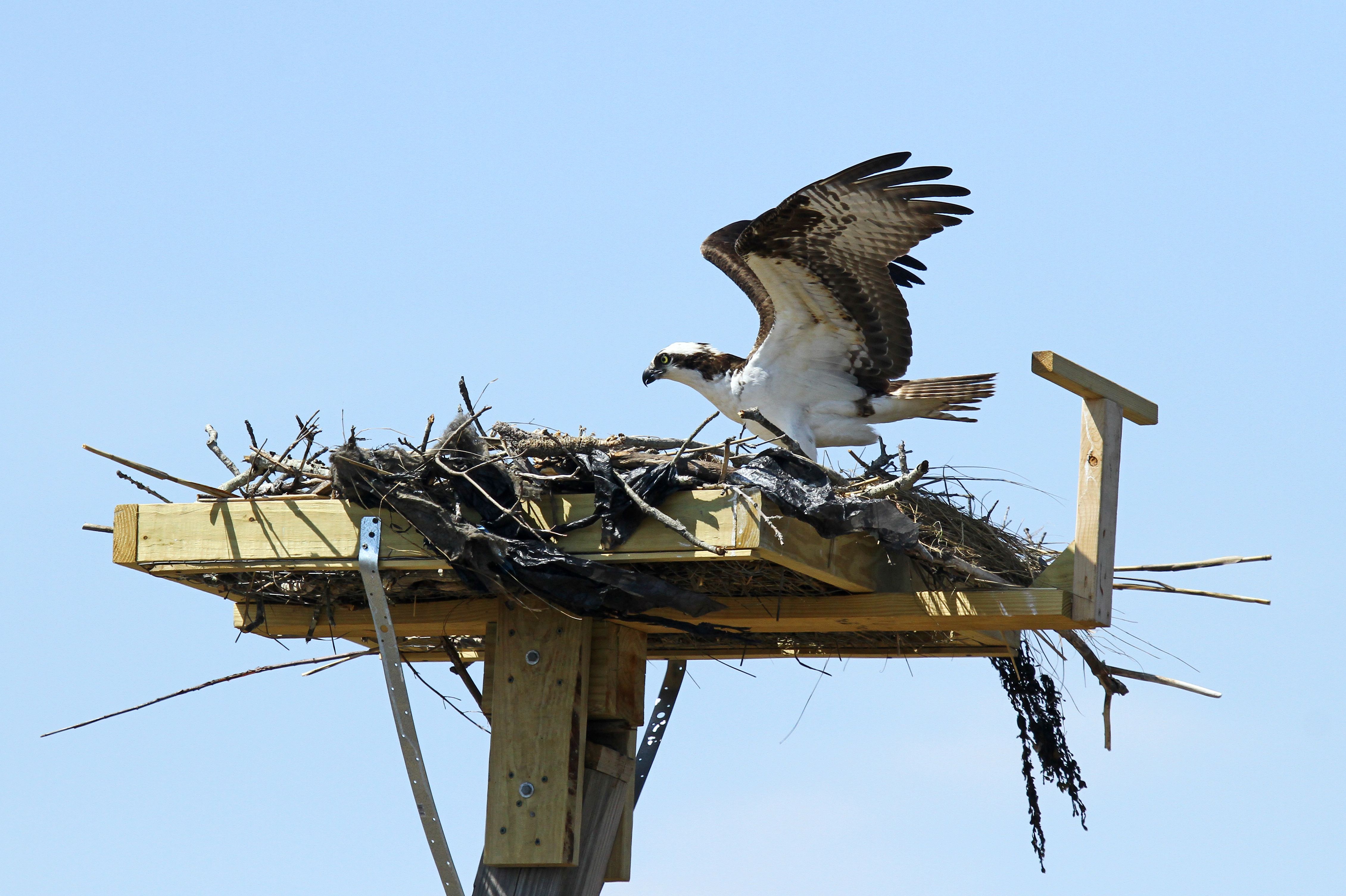
Photo by Johannis North
02/01/2019
Welcome to the 2019 Rhode Island Osprey Monitoring season!
Training sessions for monitors are quickly approaching. Following is the schedule of this year’s training sessions. If you have already attended a session in the past you do not have to come, but we would love for you to join us as we kick off the season. Learn more about Osprey Monitoring here:
2019 Osprey Monitor Training Sessions:
Sunday, February 24, 2019; 11:00 pm – 1:00 pm; Caratunk Wildlife Refuge, 301 Brown Avenue, Seekonk, MA
Tuesday, February 26, 2019; 6:00-8:00 pm; Audubon Nature Center and Aquarium, 1401 Hope Street, Bristol, RI
Sunday, March 3, 2019; 1:00-3:00 pm; Powder Mill Ledges Wildlife Refuge, 12 Sanderson Road, Smithfield, RI
Sunday, March 10, 2019; 1:00-3:00 pm; Fish & Wildlife Kettle Pond Visitor Center, 50 Bend Rd, Charlestown, RI
Please RSVP to Jon Scoones at jscoones@asri.org and include which date and location you would like to attend. Or, fill out our volunteer form, here. Select "Osprey Monitoring" and then choose a session.
Our training sessions will provide the educational tools that monitors need to be successful in this program. We will discuss the history of the osprey population in the country, the biology of the species, how to identify Osprey as well as how to report the valuable data that monitors collect through their observations. You may want to bring a pad and pencil in order to take notes.
The mission of this long-running program is to observe and document the breeding success of the Osprey population in Rhode Island. Each and every volunteer has an extremely important position in this study, and we couldn’t be more grateful for your assistance!
I look forward to seeing you at one of our upcoming training sessions.
Jonathan Scoones
Manager, Caratunk Wildlife Refuge
Rhode Island Osprey Monitoring Program
About the Osprey Monitoring Program
In 1977, the Rhode Island Department of Environmental Management (RIDEM) began monitoring the state’s osprey population as it recovered from the effects of DDT. Staff biologists and volunteers observed all known nests in Rhode Island and recorded how many chicks fledged each year. In 2010, with cooperation from RIDEM, the Audubon Society of Rhode Island took over management of this successful program.
The program depends upon volunteers to monitor nests every two weeks from April through July and record osprey presence/absence, behavior, and number of young. Volunteers must have their own spotting scope or high-power binoculars. If you would like to get involved or find out if there is a nest near you that needs monitoring, please contact Jon Scoones at jscoones@asri.org.

















